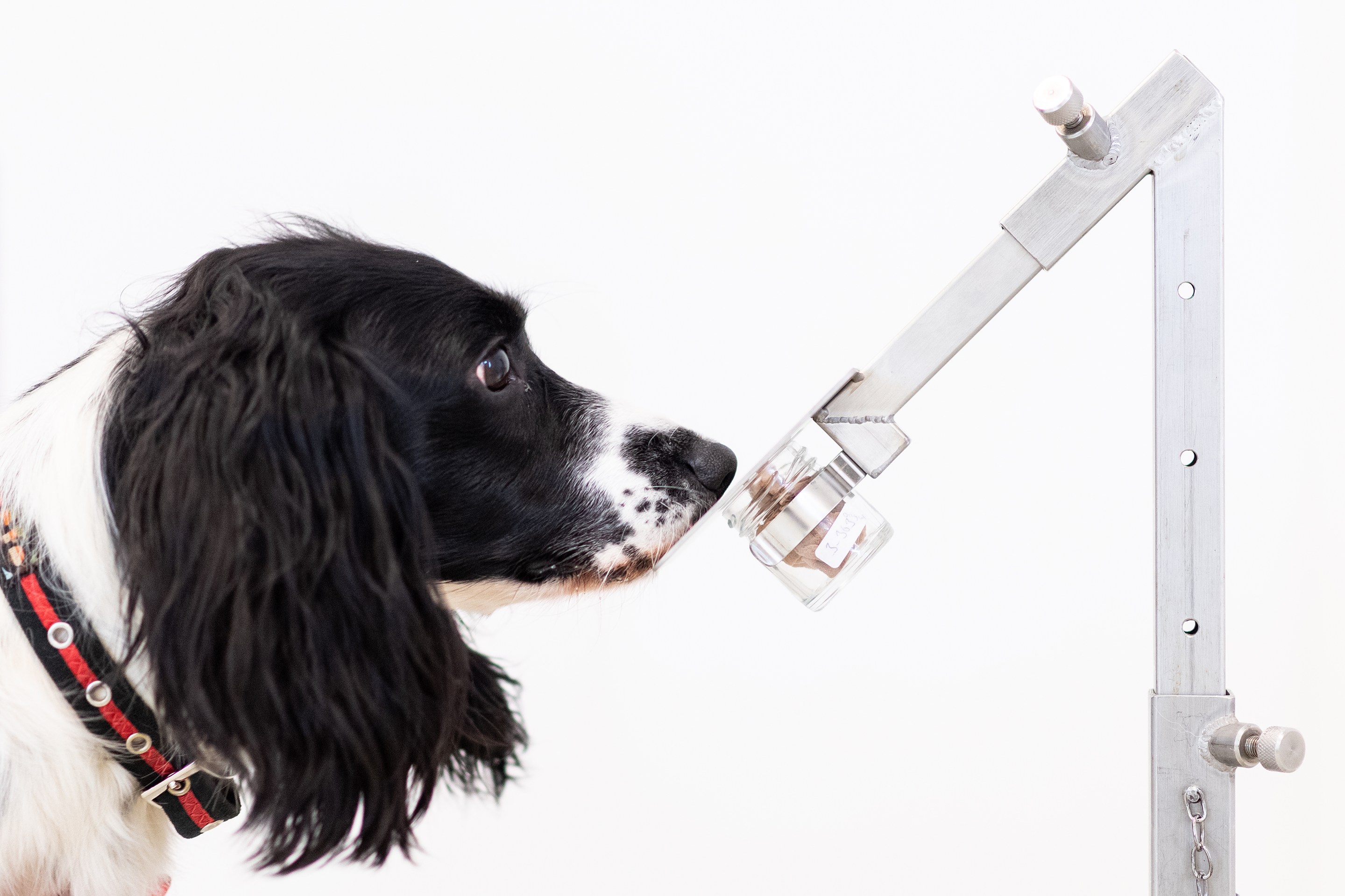Various forms of hygiene theater have been integral to the efforts of professional sports leagues to convince the public that they should continue playing games and cashing checks while a deadly pandemic rages throughout the country. Robots and sanitizing stations and temperature checks have all been deployed in order to give the impression that everything is being done safely and responsibly. But the Miami Heat have taken this practice to the next level. Forget the virus-destroying drones, they've got dogs.
From ESPN:
The Heat will use coronavirus-sniffing dogs at AmericanAirlines Arena to screen fans who want to attend their games. They've been working on the plan for months, and the highly trained dogs have been in place for some games this season in which the team has allowed a handful of guests -- mostly friends and family of players and staff.Starting this week, a limited number of ticket holders will be in the seats as well, provided they get past the dogs first."If you think about it, detection dogs are not new," said Matthew Jafarian, the Heat's executive vice president for business strategy. "You've seen them in airports, they've been used in mission-critical situations by the police and the military. We've used them at the arena for years to detect explosives."
ESPN.com
Neat! It's always fun to point and quietly whisper, "Aww, what a little genius," at the bomb-sniffing dog at the airport, so imagine what a great time you'll have doing at the Miami Heat game while waiting for the dog to reveal whether or not the novel coronavirus is currently ravaging your lungs.
Or maybe you won't really need to worry about it. The ESPN article cites an unspecified German study in which coronavirus-sniffing dogs had a 94-percent success rate when trying to detect the virus in humans, but further reading on the subject might dampen your belief that a dog will be able to tell you if you are sick with COVID-19. For example, this CNN article focuses on a study in which six dogs attempted to sniff out the virus in sweat samples taken from infected humans, with their success rates ranging from 76 percent to 100 percent. There are also some, ah, interesting details in the story, such as this:
[T]he scientists said their study had some limitations, including that sweat samples had to be reused and researchers couldn't rule out that the dog was memorizing the scent -- although they didn't think memory played a major role. Further research was needed, they said.
And this:
Two companies -- DiagNose and Cynopro Detection Dogs -- provided dogs that can detect explosives, free of charge for the study, said lead author Dominique Grandjean, a professor and head of the equine and carnivores clinical sciences department at the National Veterinary School of Alfort in France. Of the 44 people listed as authors on the study, six had their salaries paid by these and two other companies involved in training dogs or supplying dogs for security purposes. Another co-author worked for a company that supplied some materials used to take samples, Grandjean said.
Whether dogs can or can't really tell us much about who does and does not have COVID-19, don't let it get you down, Heat fans. This uncertainty will just add to excitement of attending a game. You'll get to walk into that arena with so many questions racing around your mind: Will the Heat win tonight? Will I see some cool dunks? Am I currently infected with COVID-19? Will the virus-sniffing dog single me out?? Oh God, what if he does??? Will I die? But what if the dog is wrong??? The dogs can be wrong, right?!?! But wait, that means I could have the virus even if the dog lets me through!! Oh God oh God oh God.
Have fun at the game, folks.






